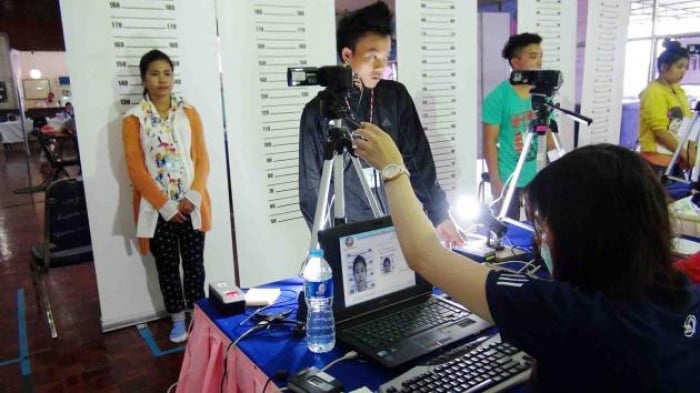New law orders one-stop service centers for slashing red tape

– Thailand news selected by Gazette editors for Phuket’s international community
PHUKET: A new law aimed at ensuring faster processing of state permits and other services should go a long way towards reducing bureaucratic red tape in Thailand, many agree.
The State Services Facilitating Act, which was promulgated in the Royal Gazette last month and is to take effect in 180 days, has drawn much support, especially from civil servants. They agree that such a law is needed to help improve the standard of public services.
Others believe the new law will play an important part in curbing corruption in the civil service.
One of the ultimate goals of this act is to provide convenience to Thai citizens, making bureaucratic processes simpler for ordinary people.
Kritsada Boonrat, director-general of the Interior Ministry’s Department of Provincial Administration (DOPA), said the department had begun compiling a handbook that would contain precise and detailed information on how to make an official government application. He said he was confident such procedures could be done within 180 days.
DOPA has administrative branches at the provincial and district levels, dealing mainly with registrations and paperwork including changes of nationality, collecting information, and distributing identity cards.
Kritsada said he was ready to cooperate with other ministries or state agencies by taking part in one-stop service centres initiated by Deputy Prime Minister Wissanu Krea-ngam.
The deputy PM said the ultimate goal of the new law was to turn time-consuming, complex and confusing processes carried out by ill-mannered officials into convenient service centres for the people.
To accomplish this, state agencies must create one-stop centres where people can make applications and receive service under one roof, without having to wander around to various desks, offices or buildings, Wissanu told a seminar last week.
The one-stop centres would operate inside CentralWorld in Bangkok and 10 other Central shopping malls all over the country, he said.
Manus Chuasawat, chief of the Bangkok Metropolis Land Office (BMLO), said he agreed with the notion of one-stop service because government agencies sometimes require evidence from other state agencies, which meant people had to travel to various places, which could be far apart, before their requests were granted. This cost time and money.
However, he suggested that the one-stop service centres be goal-oriented. “For example, vehicle-registration renewal centres should have car-inspection services, so that people do not have to go to separate places.”
This is because it is impossible to fit all offices from various ministries into a single service centre, Manus said.
He also pointed out his concern that some government offices, particularly those with specific areas of responsibility, would find it hard to take part in a one-stop service centre, nor would it be necessary for them to do so.
“The BMLO holds around 150,000 property title deeds and another 150,000 documents containing land records. Hence it would be physically impossible for all centres to have these important and necessarily documents.”
However, he said although those offices would have difficulty making their branches one-stop service centres, they could still take part, for example by providing initial service or information.
For his part, the BMLO already plans to make a handbook that contains necessary information according to Article 7 of the act and improve the office’s online website.
Pong-ard Treekitvatanakul, deputy secretary-general of the Public Sector Development Commission, said the combination of one-stop service centres and people’s handbooks would greatly improve convenience for citizens.
Asked how the quality of service by public offices could be maintained, he said the commission could closely monitor public offices in and around Bangkok, but those in the provinces should be monitored by local administrations.
He also said the commission would from now on closely monitor certain tasks and responsibilities of the public sector in order to identify areas that can be outsourced to the private sector for higher efficiency and improved service. For example, car inspections for registration renewals could be outsourced to private firms.
Pong-ard said citizens themselves could take responsibility for monitoring government services. They can submit complaints to the responsible ministry, the Public Sector Development Commission or the Prime Minister’s Office.
Apinan Puakpong, veteran chief of Nonthaburi’s Bang Bua Thong district, said the act would significantly curb the culture of corruption that has long existed in Thailand’s bureaucracy. He said some agencies deliberately made processes inconvenient in order to be offered money or some other interests in exchange for faster service.
“It is almost a culture, because people have been doing it for so long, people know what to do or how much to give if they go to certain public offices,” he said.
So, he said it was a good idea to have one-stop service centres in each province. However, it would be very beneficial to have them also at district or local level, because they would be physically closer to the people – they could see the actual problems and solve them more quickly than at provincial centres.
— Phuket Gazette Editors
Latest Thailand News
Follow The Thaiger on Google News:


























